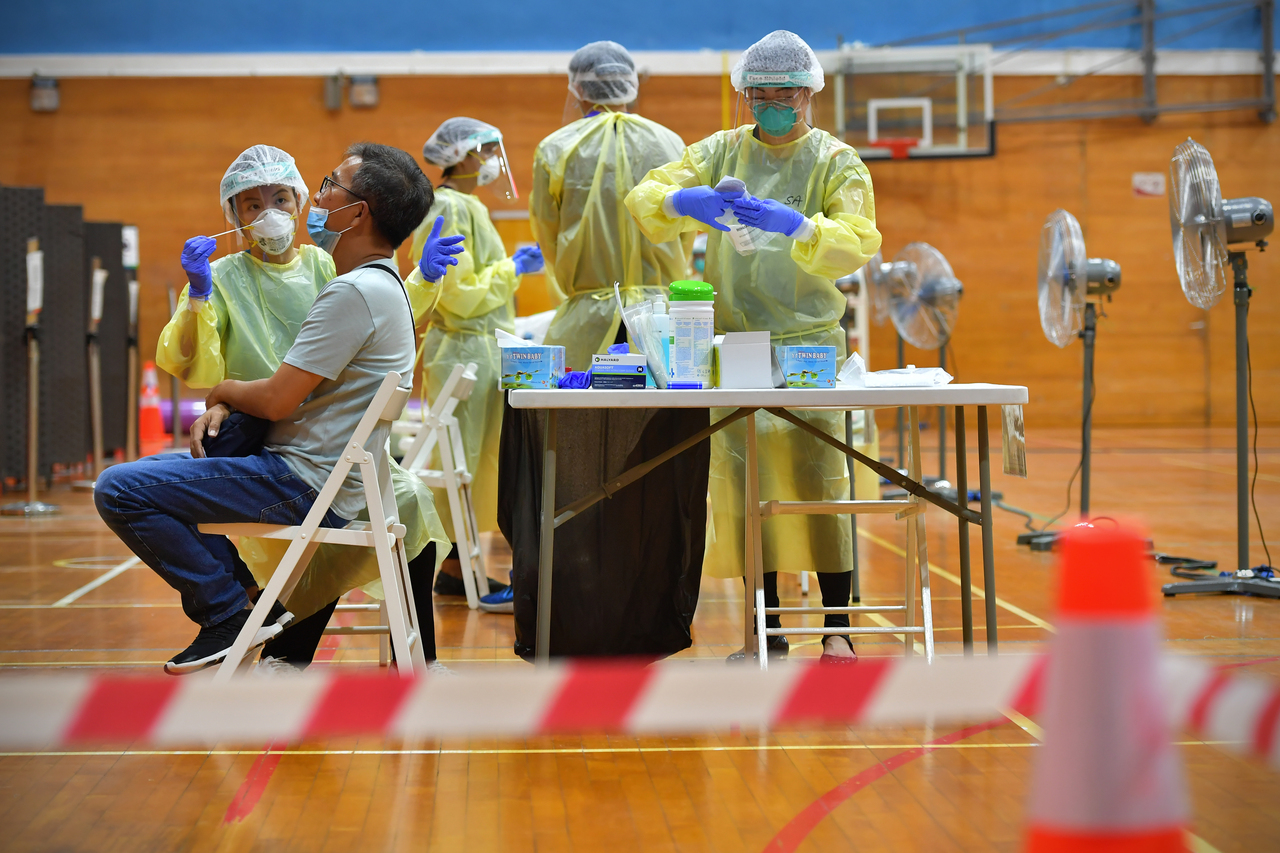Govt would have done some things differently with hindsight: PM Lee on Covid-19 response


SINGAPORE - Singapore has done well in handling the coronavirus pandemic so far in terms of health outcomes, though its response was not without shortcomings, said Prime Minister Lee Hsien Loong.
Joining the debate on the President's Address in Parliament on Wednesday (Sept 2), he noted that the country's fatality rate is one of the lowest in the world, with new infections in the community down to just a handful a day and fewer than 100 patients remaining in hospitals.
With hindsight, the Government would have done some things differently, he said.
Had it known earlier that Covid-19 patients were asymptomatic, the Government would have quarantined all Singaporeans who were brought back home from abroad in March, instead of only those returning from certain countries.
He added that they would have also been tested before being released from quarantine, even if they did not show any symptoms, instead of assuming that no symptoms meant no infection.
The Government would have also recommended the wearing of face masks sooner, said Mr Lee, noting that it took the best available scientific advice at the time and changed its policy once the World Health Organisation recognised that asymptomatic transmission was a major problem.
Mr Lee also said the authorities would have acted more quickly and aggressively to control the rapid spread of the disease in migrant worker dorms.
The Government knew that communal living in dorms posed an infection risk and stepped up precautions, which seemed adequate, till the bigger clusters broke out and threatened to overwhelm it, said Mr Lee.
"All this is wisdom after the fact. We must learn from these errors, and do better the next time," he said.
"But in the fog of war, it is not possible always to make the perfect decisions. Yet we have to decide and move. We cannot afford to wait."
Due to the scale and complexity of Singapore's response to Covid-19, there have been inevitably some "rough edges", said Mr Lee.
[embed]https://www.youtube.com/watch?time_continue=1&v=72wzbI89OYI&feature=emb_logo[/embed]
He cited the foreign worker dormitory situation, and how work is being done to help workers get back to their jobs now that dorms have been cleared of the disease.
This has to be done safely because of the risk of re-emerging cases, he said, acknowledging this was a complicated exercise that has made things difficult for employers, especially contractors, who have to deal with new rules even as they try to revive their businesses.
"But I hope they understand that we are doing our best to smooth things out, and are doing all this in order to keep our people safe," he said.
Mr Lee said that Singapore has managed to stabilise the Covid-19 situation and carefully reopen its economy and society due to the combined efforts of the public service, political leadership and everyday Singaporeans.
But the country cannot let its guard down, he warned, noting the irony that the more successful Singapore is in keeping cases low, the more people will wonder if the difficult measures against Covid-19 were necessary.

He recounted to the House a recent e-mail he received from a university student, who complained that Singapore's response to Covid-19 was "one of the greatest overreactions to a public health issue".
The student noted that hospitals here were far from being overwhelmed, and had advocated for herd immunity.
"You only have to look at the situation in other cities that have let this happen, to see how this could have turned out for us," Mr Lee said.
The Prime Minister cautioned that the coronavirus remains as infectious and potent as it was before, and that this has not changed.
"What has changed is that we have taken measures and we have built up our capabilities to contain it. If we relax these measures now because the numbers have come down, we will have a resurgence," he said, pointing to how this has happened in some cities.
Covid-19 will not be Singapore's last public health crisis, and Singapore can apply lessons that it has learnt in managing this disease to ready itself for any future pandemics, said Mr Lee.
He noted that scientists have been talking about "Disease X", a new disease that is highly infectious, deadly, and mutates easily.
When Covid-19 arrived, people asked if this was it.
"Covid-19 has been a disaster for the world, but it is not Disease X," said Mr Lee. "It is not the worst new disease that can befall humankind."
He warned that it is only a matter of time before this disease happens.
"So we had better learn from Covid-19 how to deal with a pandemic, and be as ready as we can, should a worse one - when a worse one - befall us. We should build up our resilience, our instincts, our preparations. So that when Disease X does come one day, we will be prepared," he said.
For the latest updates on the coronavirus, visit here.
This article was first published in The Straits Times. Permission required for reproduction.